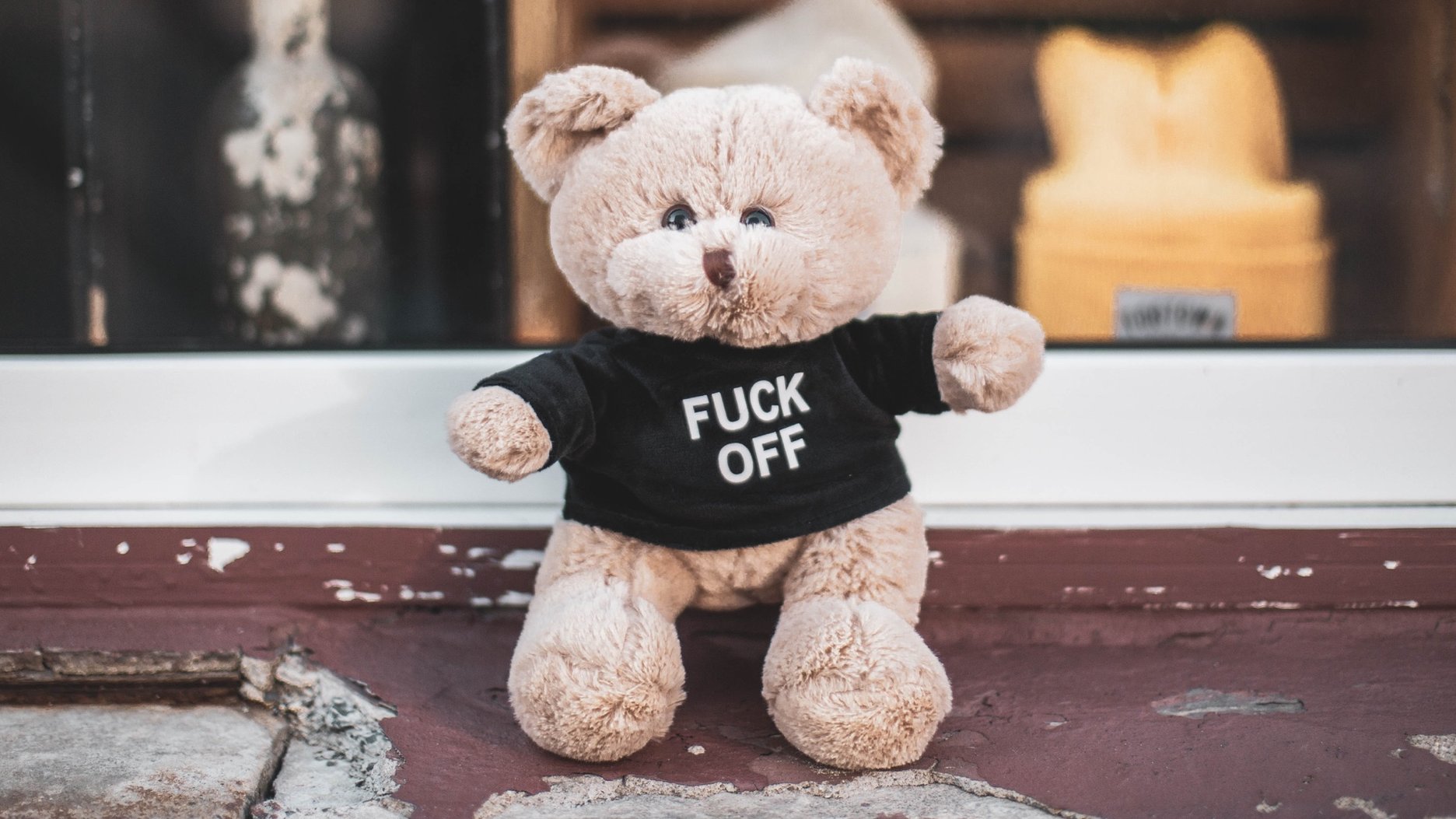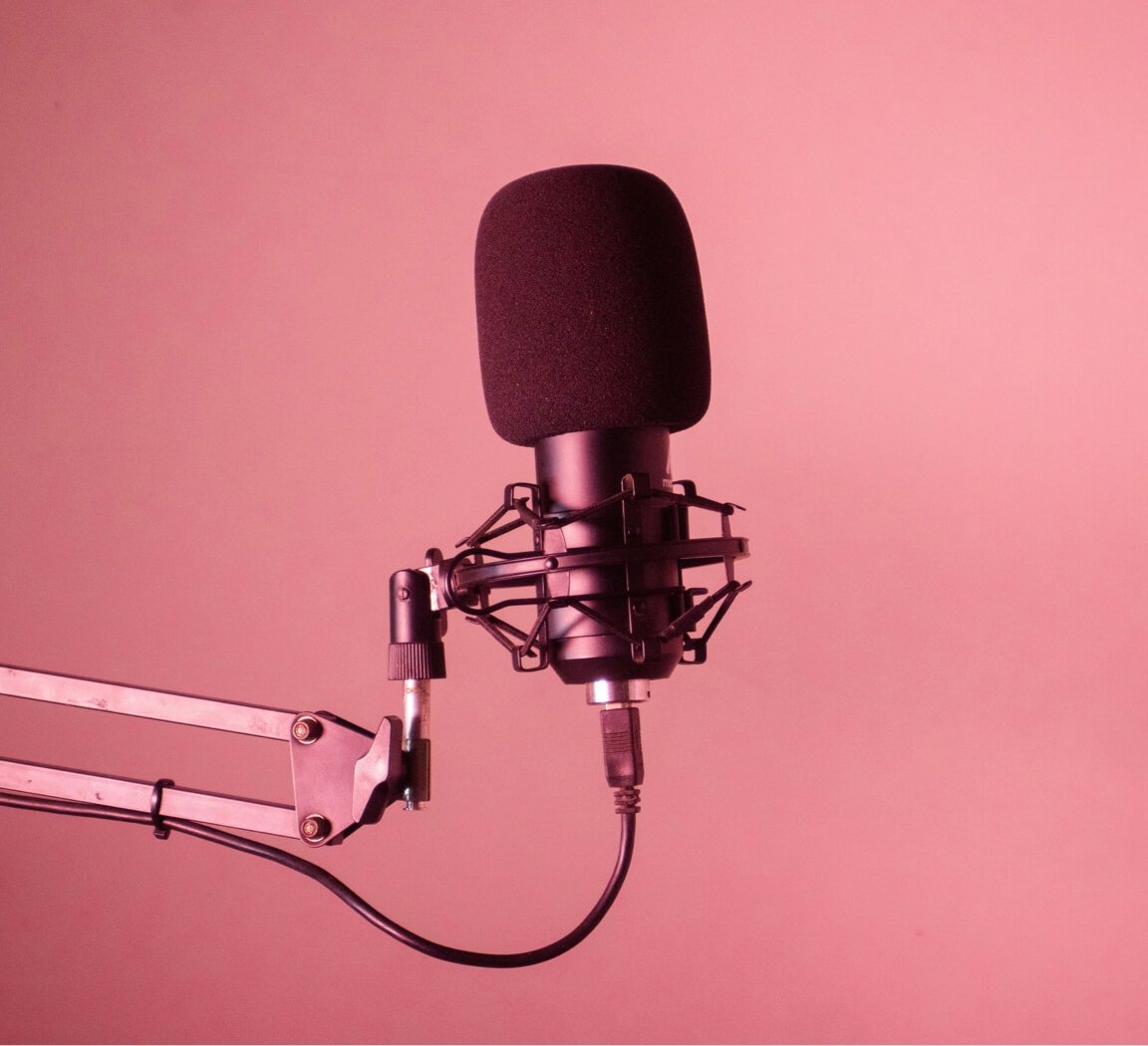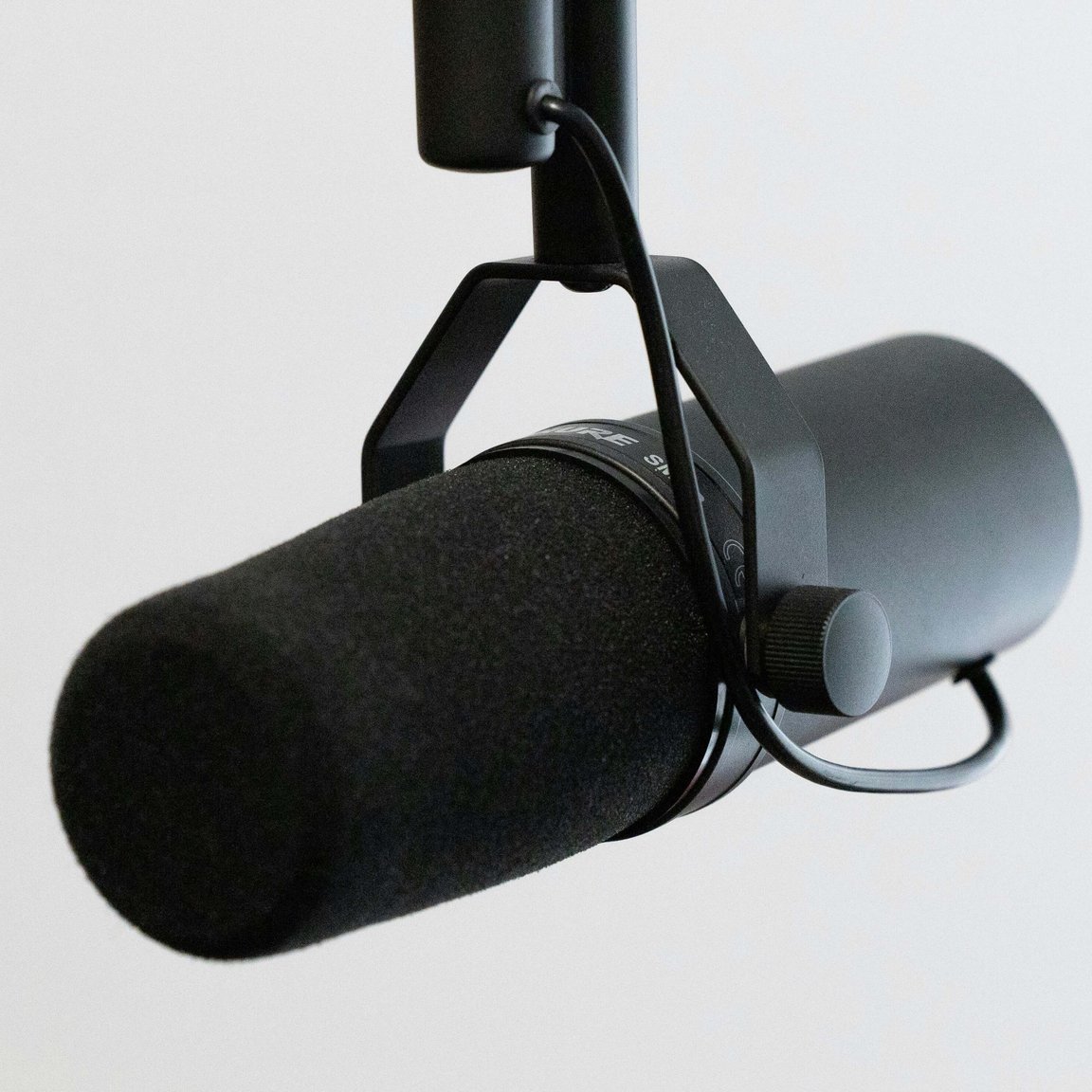First, let’s dispense with the moral argument about swearing. Partly because it’s off-topic, but mostly because it isn’t a moral choice, it’s an artistic one. The choice to allow – or not allow – swearing on your podcast should be based on your audience.
But it’s not a simple on/off switch, and there are a few things to consider. So, let’s get into them. (And yes, this post will contain some swearing.)
What even is a swear word?
North Americans tend to consider words like “hell” and “damn” as swearing. The UK (where I’m from) is a little more liberal on those religious “curse” words. That said, “bastard” and “pissed off” make it to mainstream TV in the States, but Brits can usually only hear them after 9pm. That’s thanks to a thing called the watershed.
If you’re unsure of where you want to draw the line, check out George Carlin’s 7 words you can’t say on TV bit. Alternatively, Google the movie rating you want to hit (“PG-13” in the US, for example). The key is to think about categories rather than specific words.
Even with a list, there’s context to consider, so if you want to keep a hard line, you might need to take each case on its merits.
Set some ground rules
Once you’ve found where you draw the line on swearing, it’s important to remain consistent. Imagine a teenager playing your podcast. If a parent walked by, could they hear something that might be of concern? If your show isn’t made for kids, is it safe for them to hear it on the school run?
Of course, you can’t police every situation. It’s the listener’s responsibility to determine what’s safe for the ears around them. But having a policy and enforcing it will make your life easier. it also gives the listeners some consistency.
The ground rules you set for guests or co-hosts might be different from your own. For example, I try not to swear when I’m recording my Hitchhiker’s show. This policy forces me to think more creatively when I speak. Instead of going for the easy F-bomb, I try to swerve around it to see what funnier expression might be lurking behind it.
These are your rules only
Apple and other podcast directories don’t care about swearing in your show. You can tag an episode or a whole podcast as explicit. This places a little red E next to the relevant title in player apps. It doesn’t have any other meaning, and your podcast won’t be treated any differently. That’s the luxury of having a system where the money isn’t controlled by one company, as is the case with YouTube.
Apple would rather you be honest if your show is dirty, than try to hide it. It’s the deception that’s more likely to get you delisted, should it ever arise (it won’t).
But what are the right rules?
It’s completely up to you, but if you’re unsure, try this rule-of-thumb for a show that isn’t intended for kids:
Let everything through, bar the big F and the big C. Those are the two words most commonly understood to be “explicit”.
Don’t make judgements based on whether a word has religious connotations, as that’s a tad condescending. For example, it’s common to hear podcasts with plenty of “shit”s but where the host says “heck” instead of “hell”. That’s just weird.
Preventing swearing before it happens
Whatever your policy, your guest and contributors will appreciate knowing about it. Plus, it’ll remove the awkward “can I swear?” moment, which should never be part of an episode.
If your policy is restrictive, reassure your guest that you can catch anything in the edit. Otherwise you’ll risk them tightening up and not being themselves. Also, telling someone not to say a certain word is a great way to guarantee that’ll be the only word they can think of.
But if you’re concerned about swearing, you should avoid having to make a decision in the edit, and the worst thing you can do is censor your content.
If you don’t want swearing on your show, don’t bleeping swear
You might have made a policy on swearing and made everyone in the recording aware of it, but still you can end up with filthy words in your audio. If this is a problem for you: remove the word entirely. Tools like Descript make this an easy task. If you can’t take it out cleanly, consider whether the whole sentence needs to be in there.
This is far better than trying to have your cake and eat it. Papering over a swear word with a bleep sound is a cop-out. It indicates that you want the impact of the word but without taking responsibility for it.
That said, if it’s a comedic point and it genuinely makes the joke funnier, leave it bleeped. The Bugle does this well. If you have a category 1 swear word (like the dreaded C bomb), the line will probably land better bleeped. That’s because it won’t carry the same blunt resonance as the naked word might. But top-tier swears like this are the only ones you should consider bleeping. People who bleep words like “ass” and “damn” are making podcasts for vicars’ wives from the 1800s.
Swearing and money
If you work with sponsors, don’t let them dictate the content that goes around the ad. It’s not uncommon for a brand to advertise with a sweary show, but ask that the hosts not swear during the ad reads.
That’s perfectly reasonable – they’re paying for that portion of the time, after all. But you shouldn’t have to make a decision about the rest of your show because of a touchy sponsor.
Dealing with complaints
Feedback and criticism are valuable to any creative field. However, if you’ve made a creative choice to allow swearing in your show and you can stand by that decision, don’t let a negative comment sway you. “This podcast has filthy language” isn’t a valid criticism for a piece of art that isn’t intended for kids.
It’s OK (not) to swear
Whether you want to run a clean show or make it so filthy the listener could write “wash me” on your feed, it’s up to you. Both are entirely valid, as is everything in between. Just make sure you know what your policy is, and be consistent. If you break it, have good artistic grounds to do so.
Where’s your line?
Where do you fall on the swearing spectrum? Do you allow swearing, or have you been bleeping it? If so, have I convinced you otherwise? Leave a comment and let’s get the discussion going.





